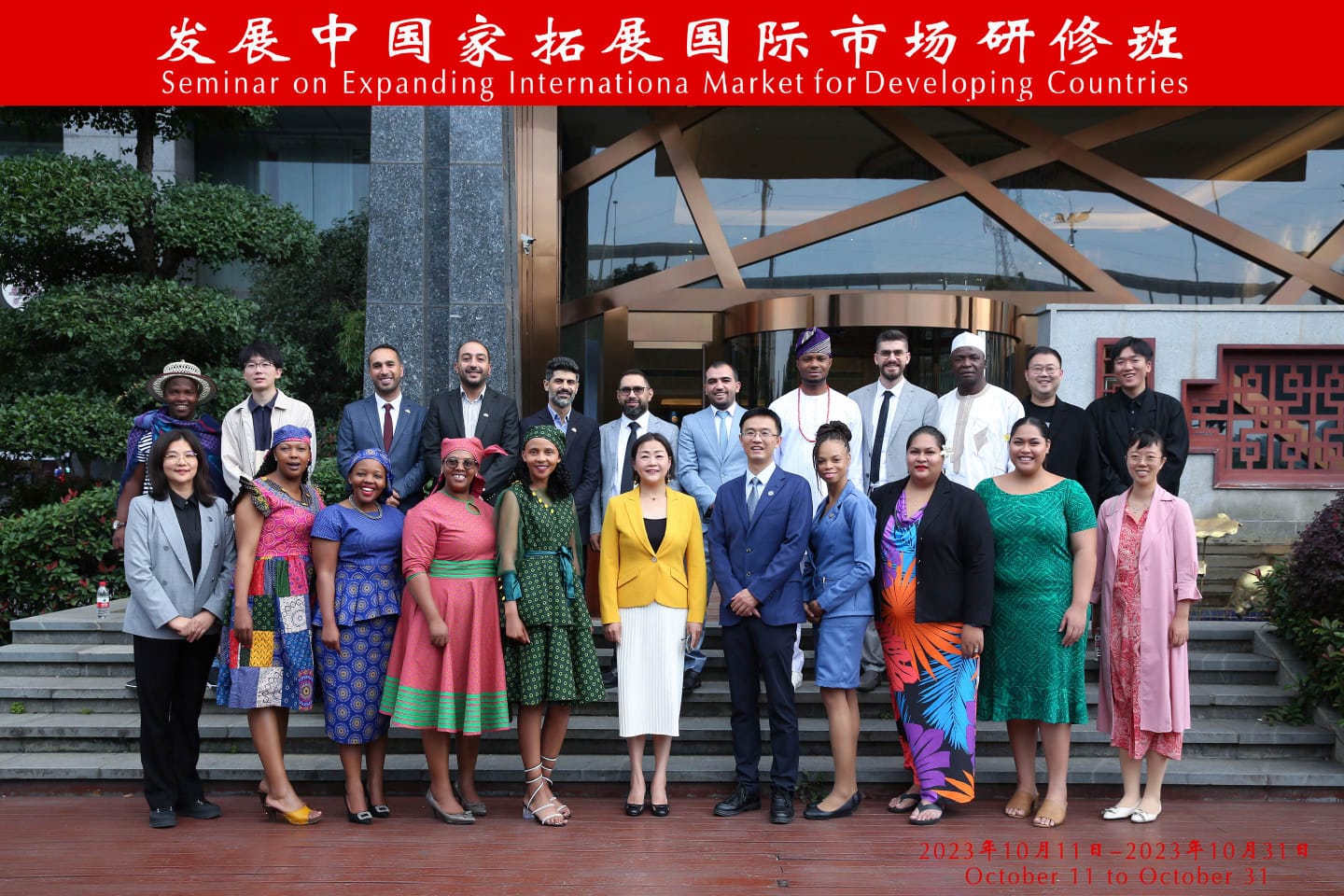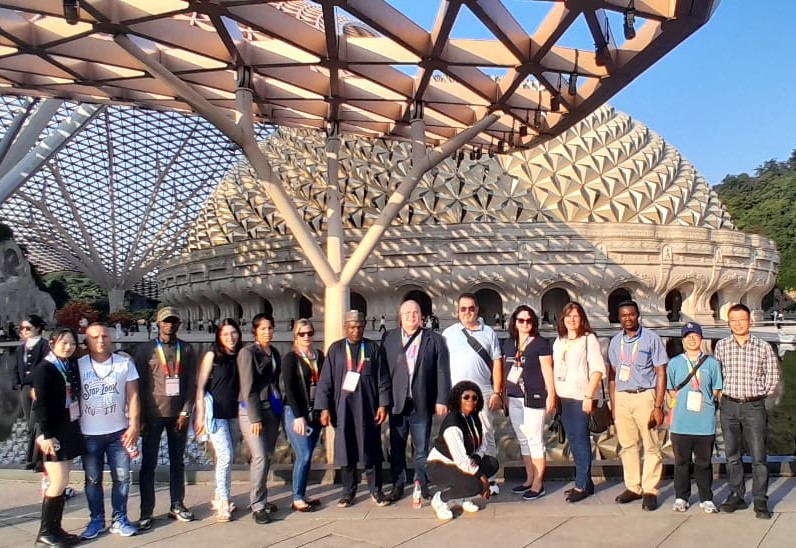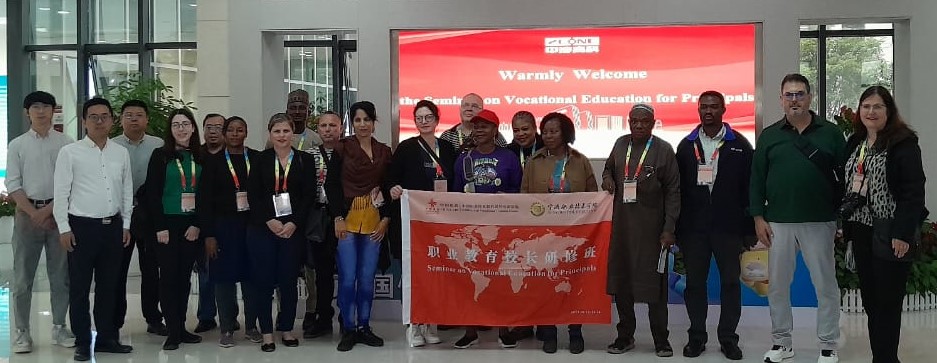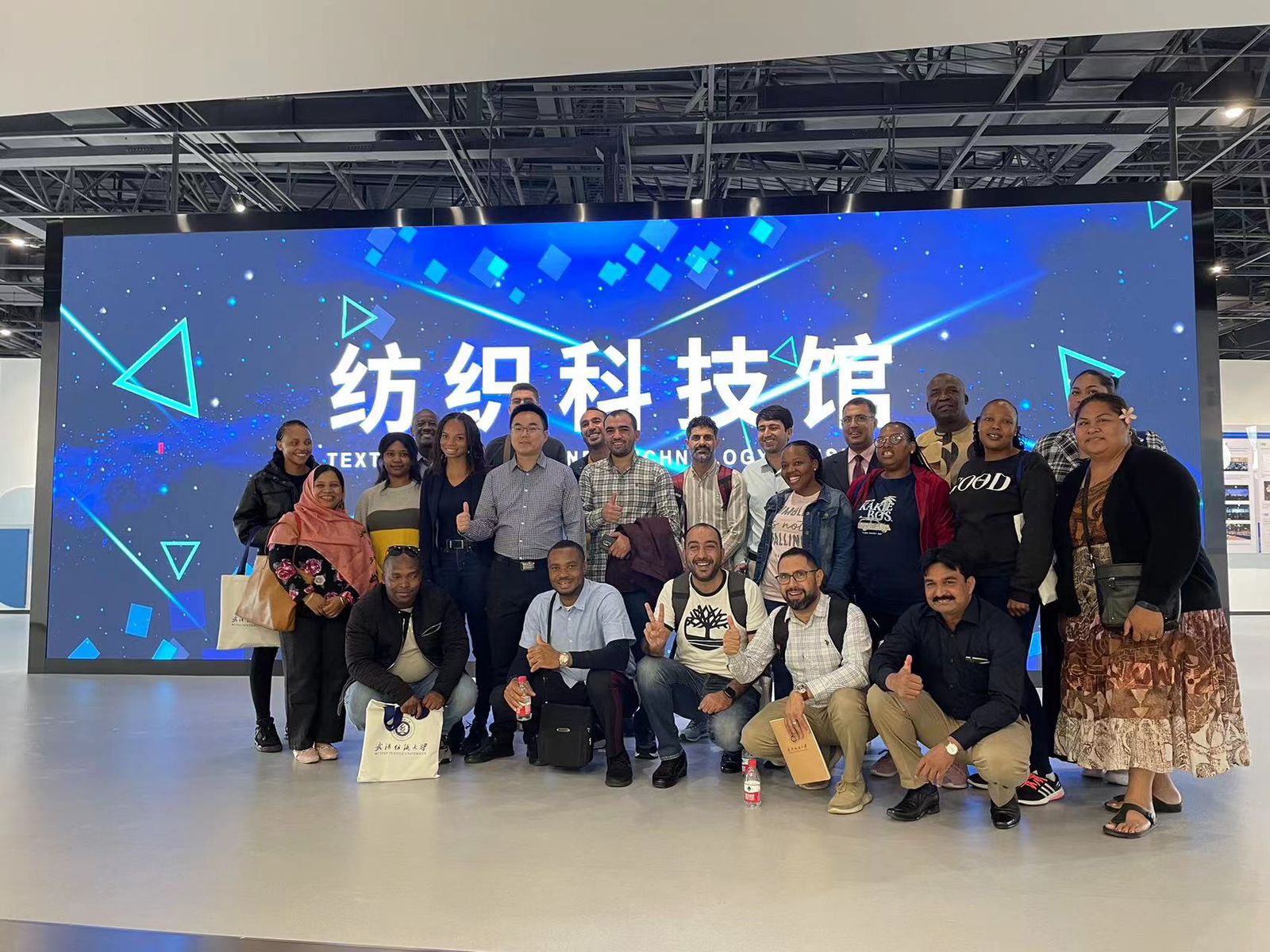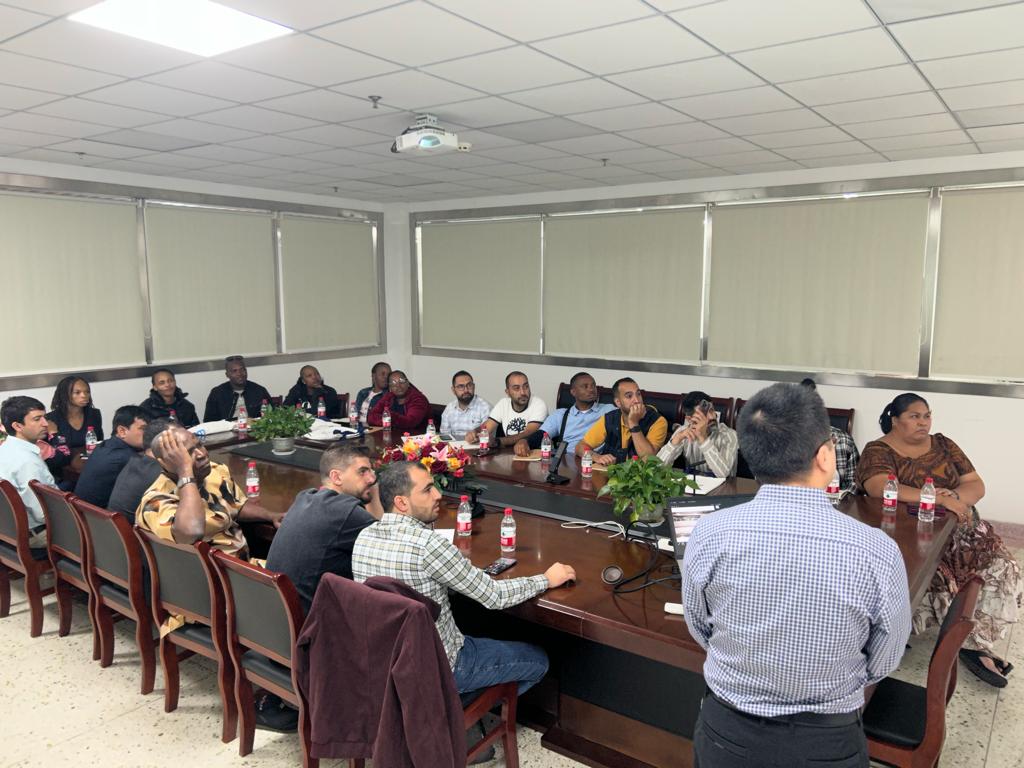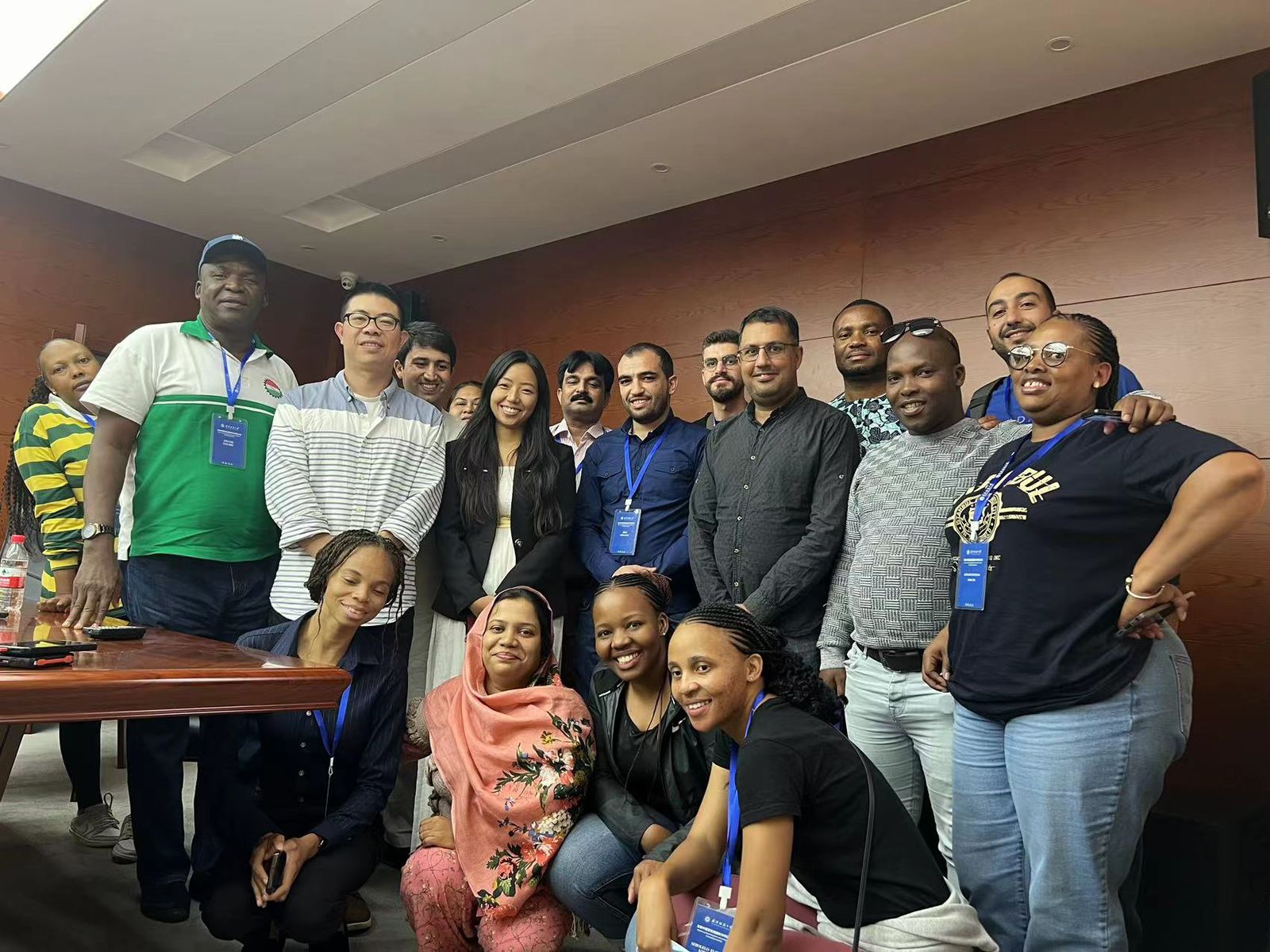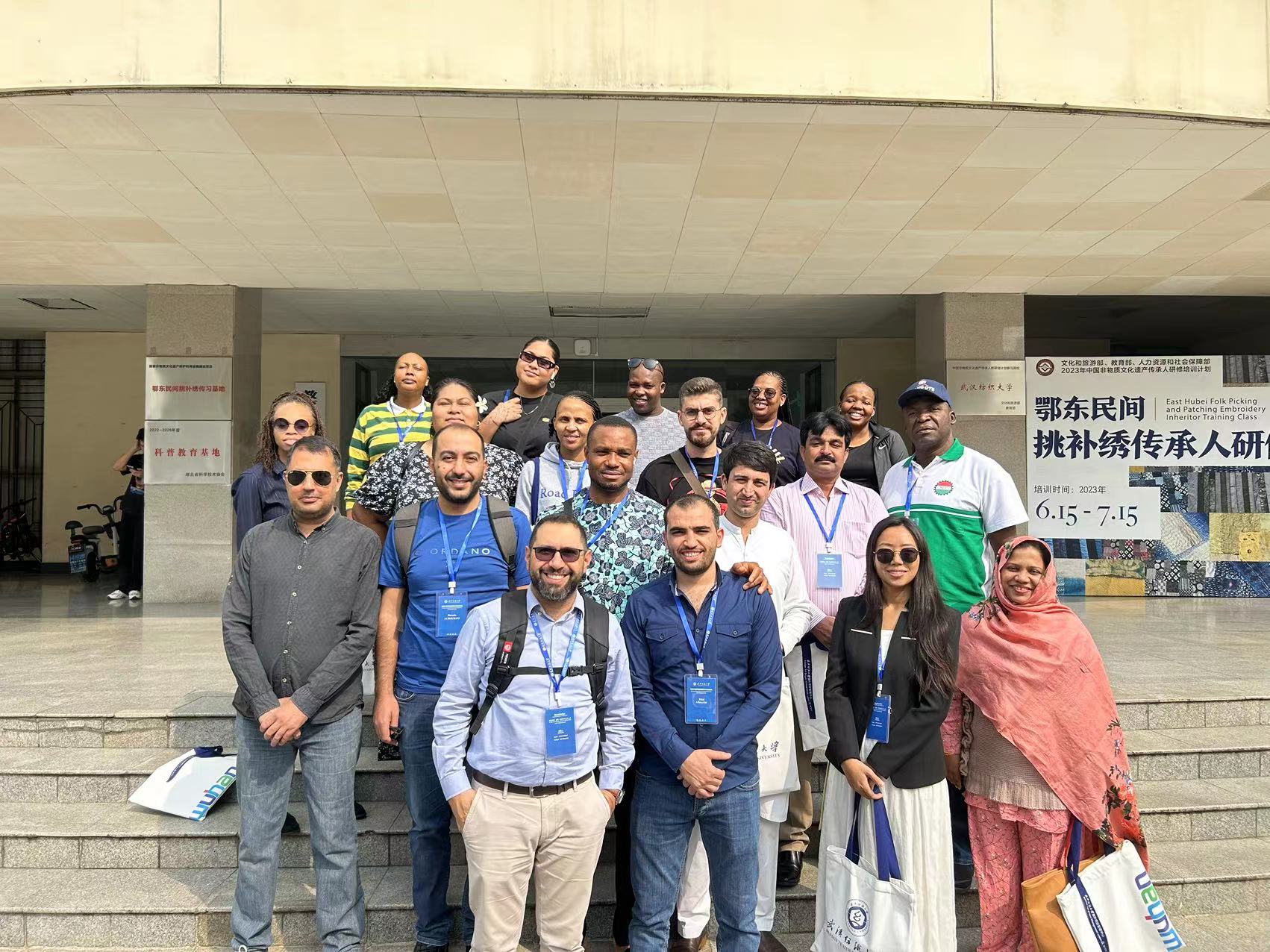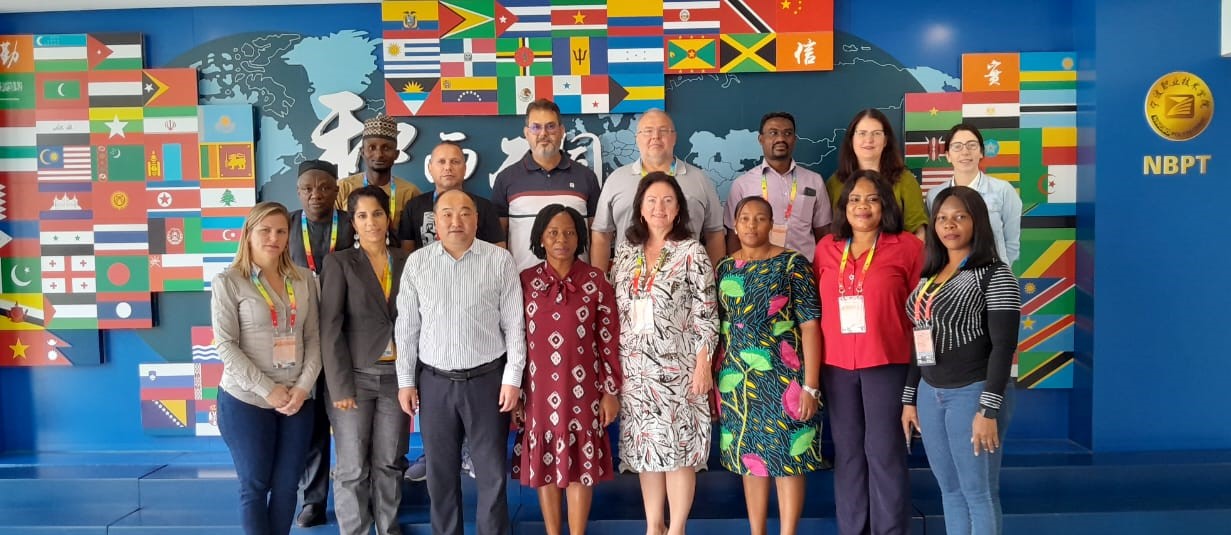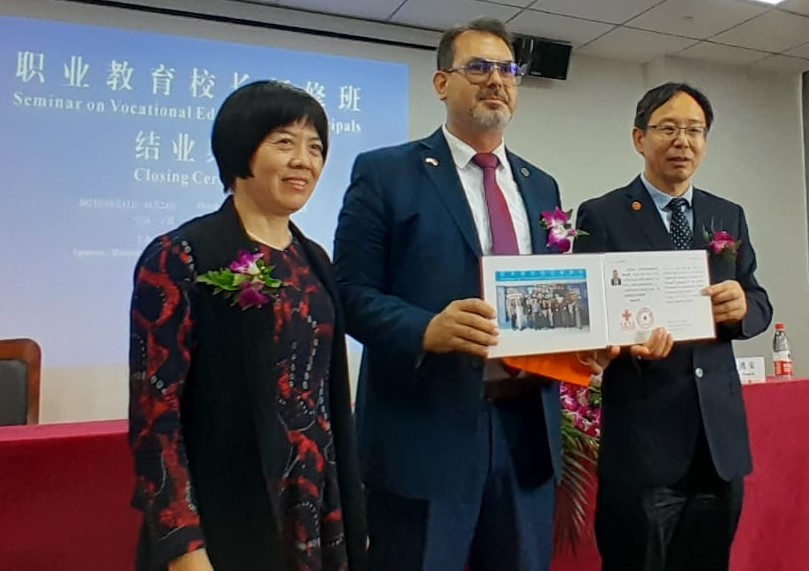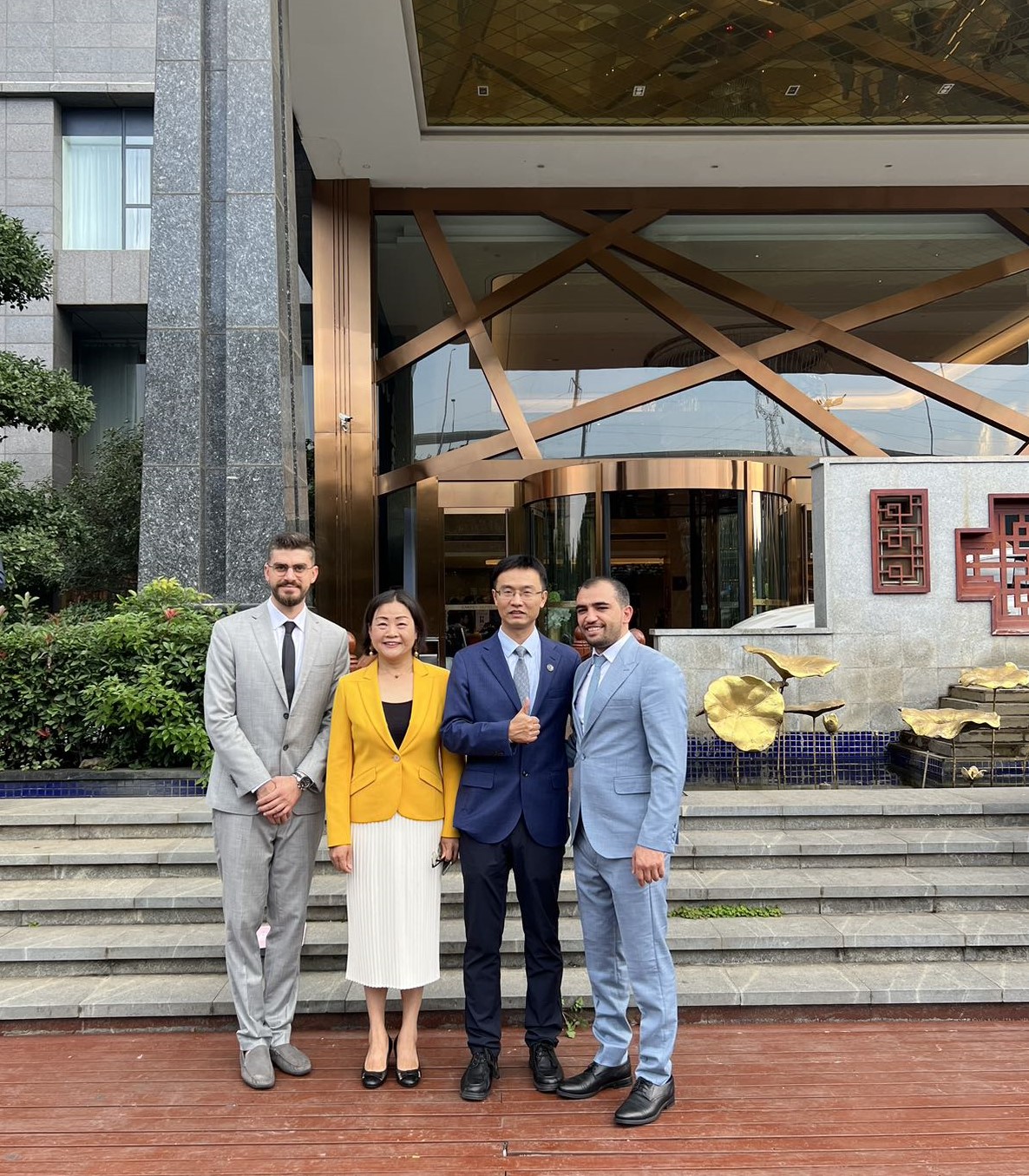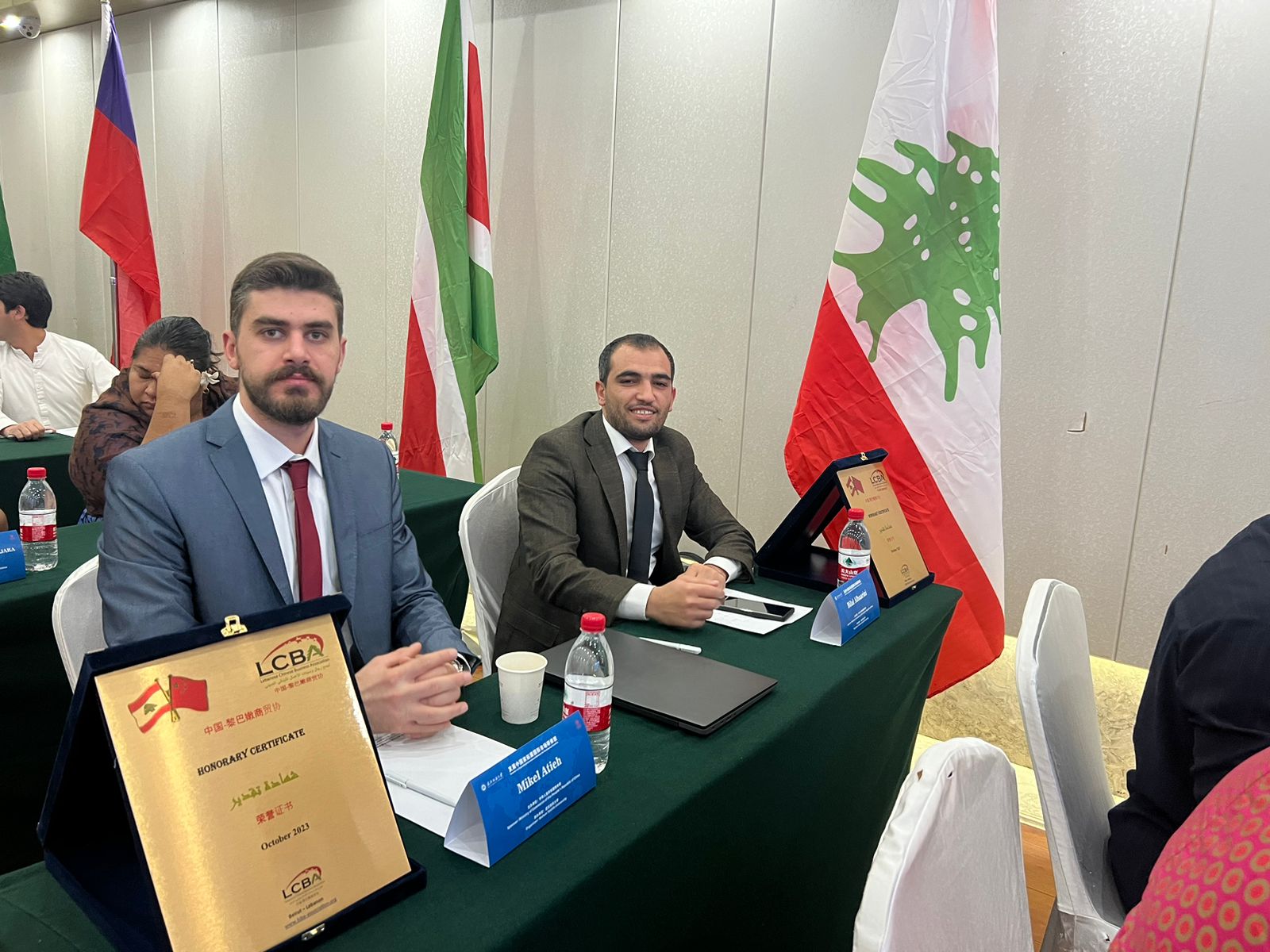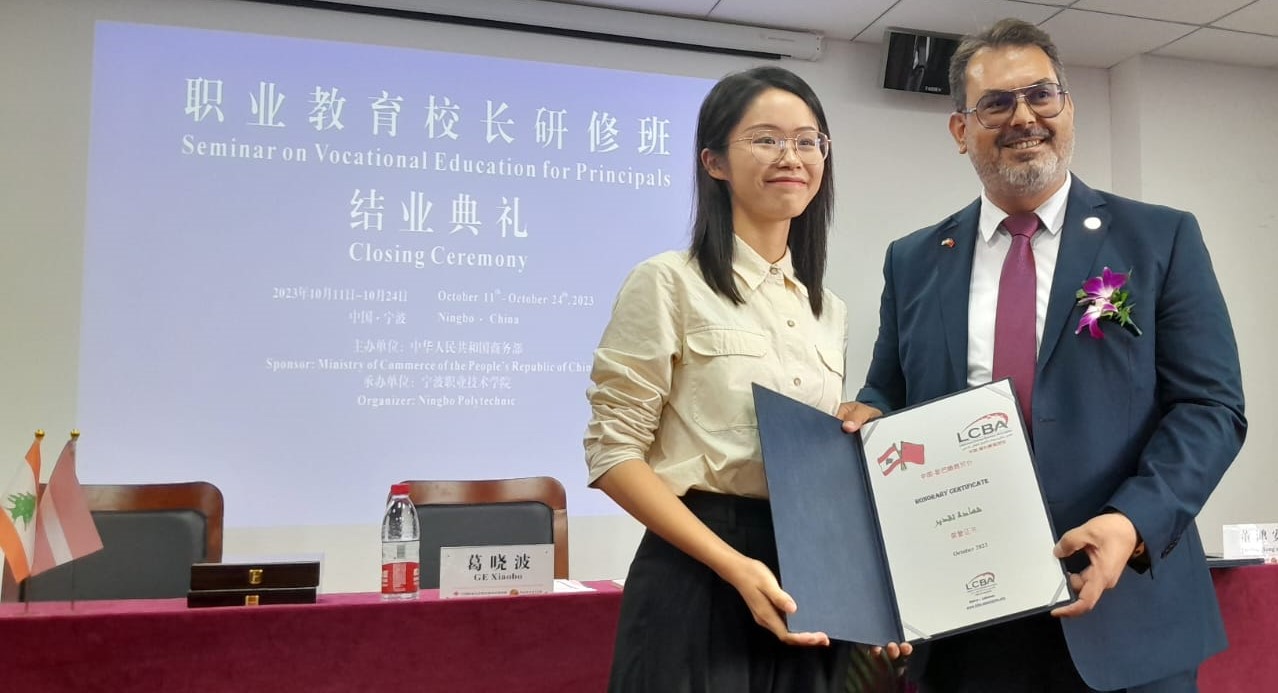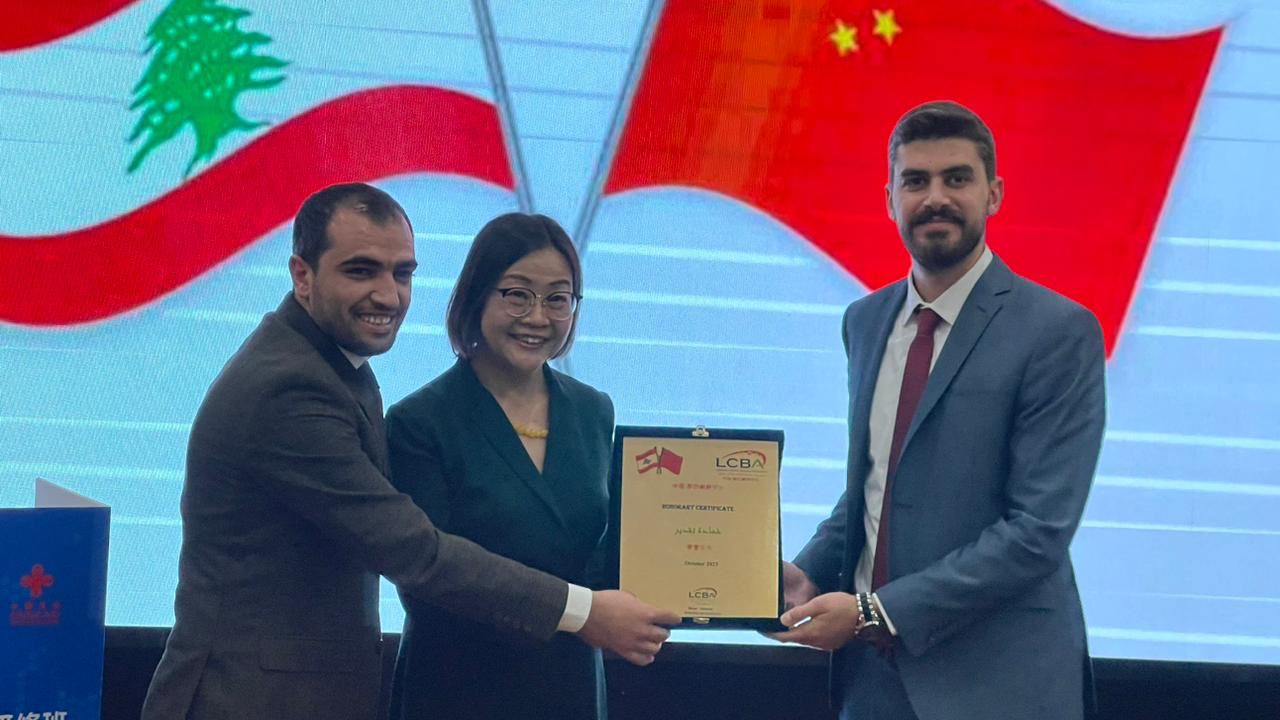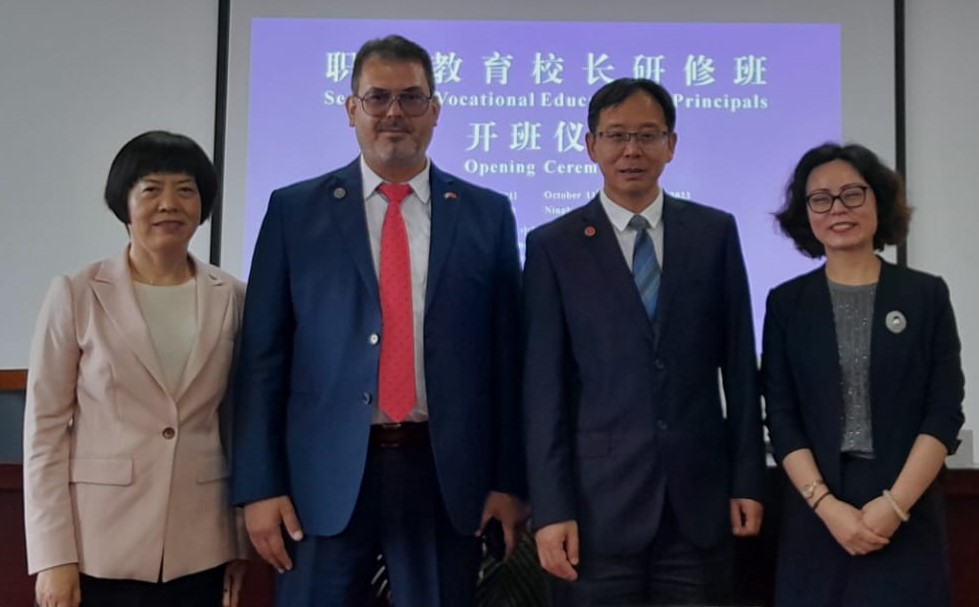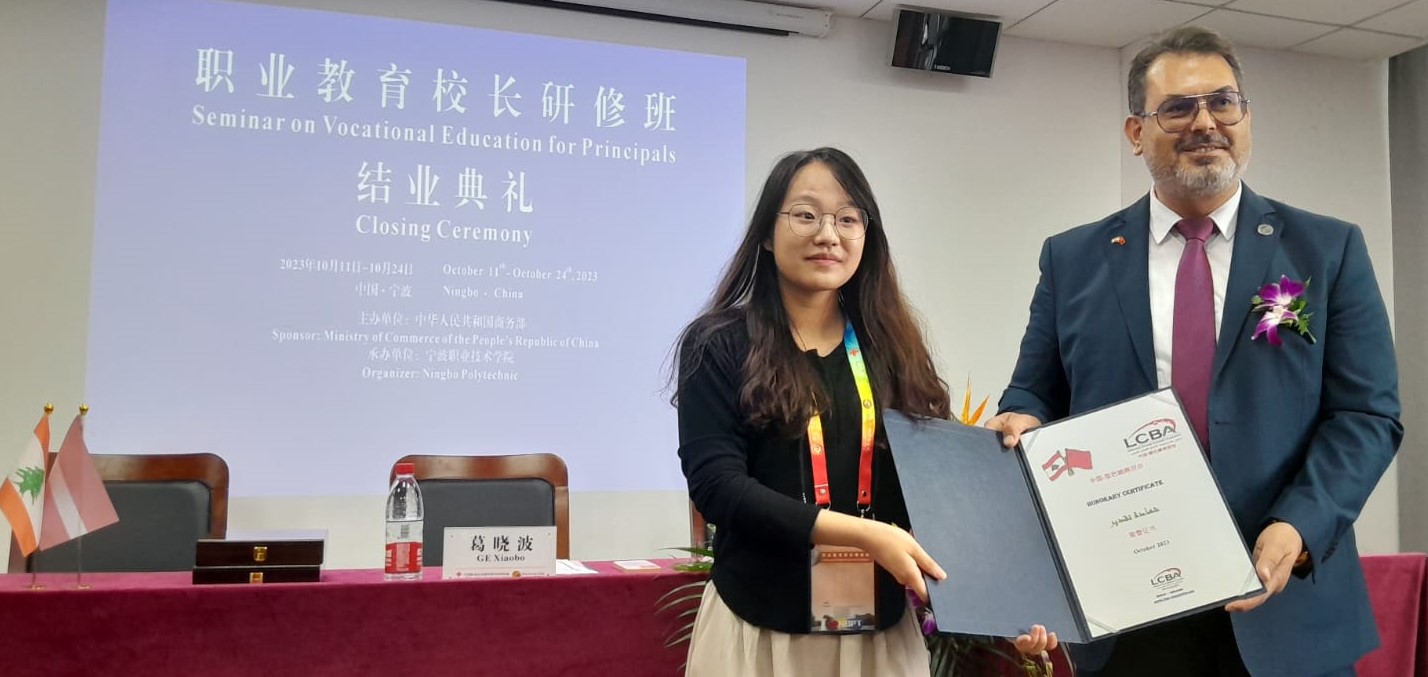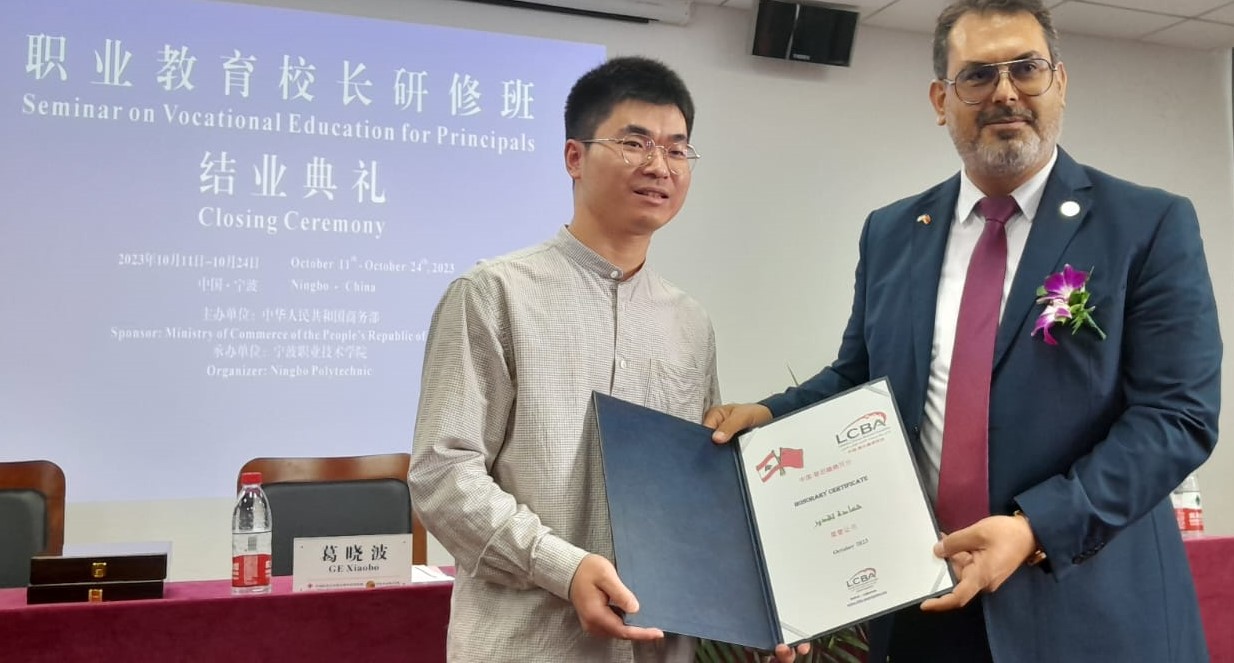Under the auspices of the Lebanese-Chinese Business Association, a Lebanese delegation participates in two seminars on trade and vocational education in China.
Under the auspices of the Lebanese-Chinese Business Association, a Lebanese delegation participates in two seminars on trade and vocational education in China.
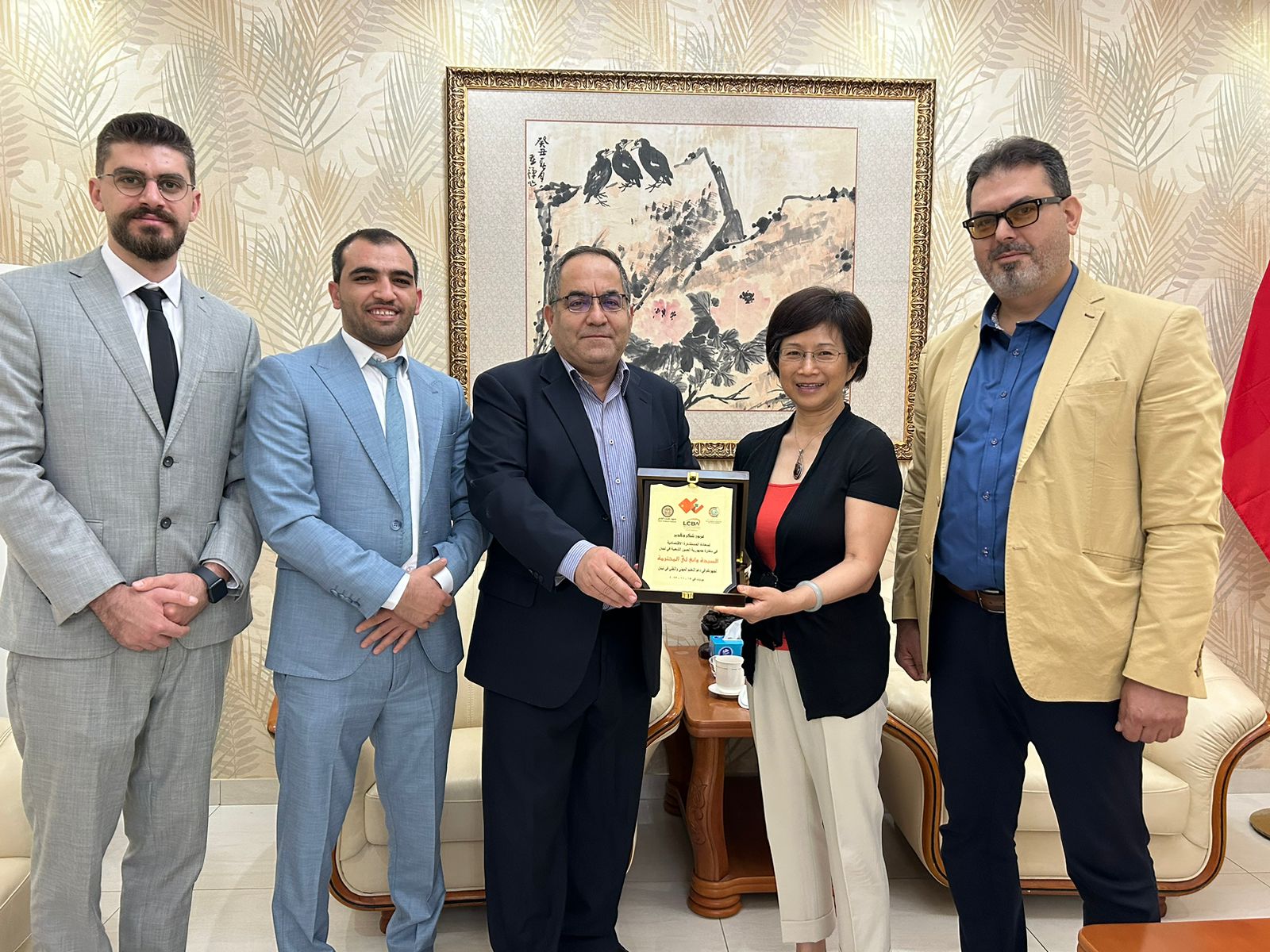
Beirut, December 11, 2023
The Lebanese Chinese Business Association, in cooperation with several Chinese institutions led by the Chinese Embassy, recently organized a visit to China for a number of Lebanese figures to participate in two training seminars. The first focused on the development of foreign trade and the expansion of international markets for developing countries, while the second addressed vocational education and training methodologies.
On this occasion, Ali Mahmoud El Abdallah, President of the Lebanese Chinese Business Association, commended the strong relations between the Association and the Chinese Embassy, noting its comprehensive cooperation and openness toward all Lebanese economic sectors, and its focus on strengthening collaboration in various fields. He praised the role of the Chinese Embassy in organizing visits for Lebanese delegations to different Chinese institutions and in facilitating participation in conferences and seminars across multiple sectors.
El Abdallah also expressed appreciation for the Lebanese participants who represented Lebanon “effectively and left a positive impression on the sponsoring and organizing institutions.” Representing Lebanon in the vocational education seminar was Engineer Ziad Al Sanae, Director of the Technical School of Tikrit, while Bilal Al Baarini and Michael Attieh took part in the second seminar on trade and international markets.
El Abdallah:
Toward a Deeper Understanding of the Chinese Experience
El Abdallah said: “These kinds of visits to China, which the Association has long been coordinating, help broaden the participants’ horizons on several crucial Chinese and global issues. The first seminar, on vocational education, was hosted by Ningbo Polytechnic Institute and focused on training vocational education managers and deepening their understanding of the development and success of vocational education in China. It also discussed administrative methods, the operation of vocational schools, curricula, and the organization and reform of vocational education in China.”
He added: “The second seminar, on foreign trade and the expansion of international markets for developing countries, was held under the sponsorship of the Chinese Ministry of Commerce and hosted by Wuhan Textile University. Representatives from nine countries Pakistan, Lebanon, Samoa, Turkmenistan, Nepal, Nigeria, Suriname, Jordan, and Lesotho participated. The seminar was a valuable opportunity for participants to learn about international market trends and prospects, as well as the impact of global political changes on trade, among other significant topics.”
The Lebanese Delegation:
We Discussed Crucial Issues
Engineer Ziad Al Sanae said: “We participated in a conference on vocational education in China, where we discussed key issues and learned about the stages and progress of vocational education in China. We toured workshops and laboratories at Ningbo Polytechnic Institute, and also visited Nanjing Vocational University of Higher Education, where we explored the most modern specializations offered, including electric vehicle maintenance, renewable energy, and aircraft and train maintenance. We also received detailed explanations about how vocational education is linked to the labor market and the importance of partnerships with the private sector.”
Bilal Al Baarini stated: “Participating in the seminar on foreign trade and international markets was extremely valuable due to the caliber of speakers and the relevance of global and Chinese issues discussed. Major transformations have occurred in global trade, and it is crucial to analyze and understand these developments.”
Michael Attieh added: “The seminar provided a broad view of China’s economic and commercial model and its ongoing developments. It also offered a wide-ranging perspective on international market environments, global supply chains, and many related issues.”
Discussing Chinese and Global Topics
The seminar on developing foreign trade and expanding international markets for developing countries covered several key areas, including understanding international market trends and prospects, global political changes, an overview of Chinese commercial sectors, the work environment in international markets, and transformations in global trade.
The vocational education seminar also addressed multiple topics, such as an overview of China’s experience in vocational education, Chinese reform and openness, the importance of development and strategic opportunities in the vocational education sector, management of vocational students’ affairs, challenges facing vocational students in developing countries, international exchange of expertise in vocational education, designing talent-training programs for vocational teachers, and improving their educational abilities and training standards.
El Abdallah concluded: “At the Lebanese Chinese Business Association, we continue to coordinate with relevant Chinese authorities particularly the Chinese Embassy in Lebanon to organize visits for Lebanese delegations from both the public and private sectors to attend seminars, conferences, and even cultural and economic visits. These efforts aim to learn from China’s experience, strengthen mutual relations, and provide tangible benefits to Lebanese participants and their institutions.”
